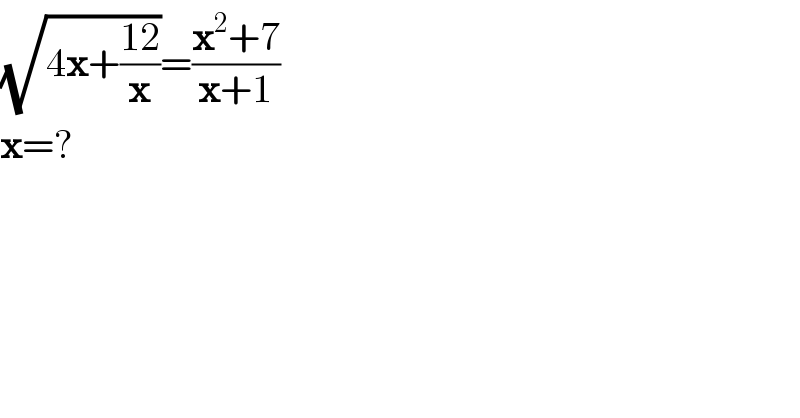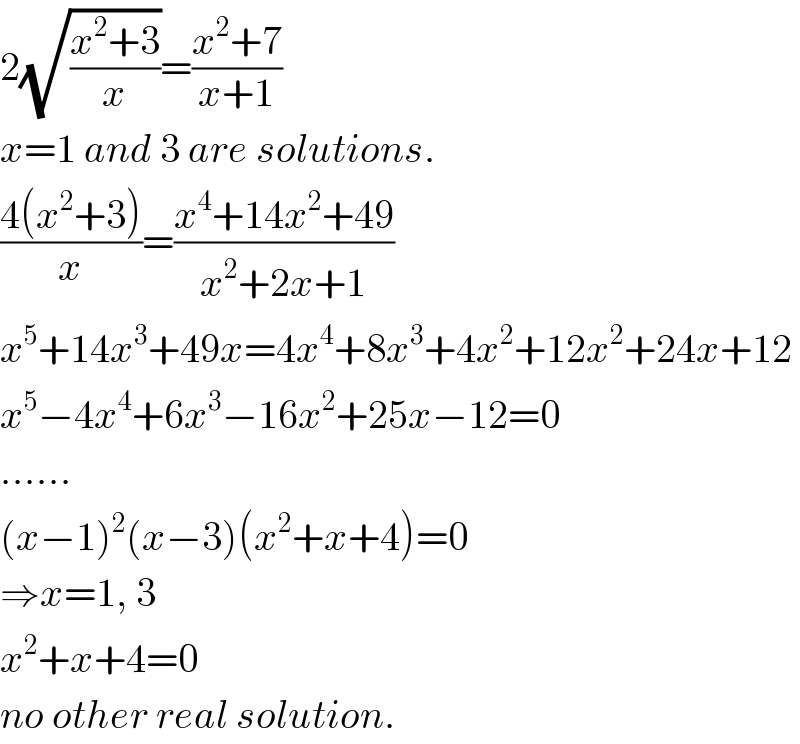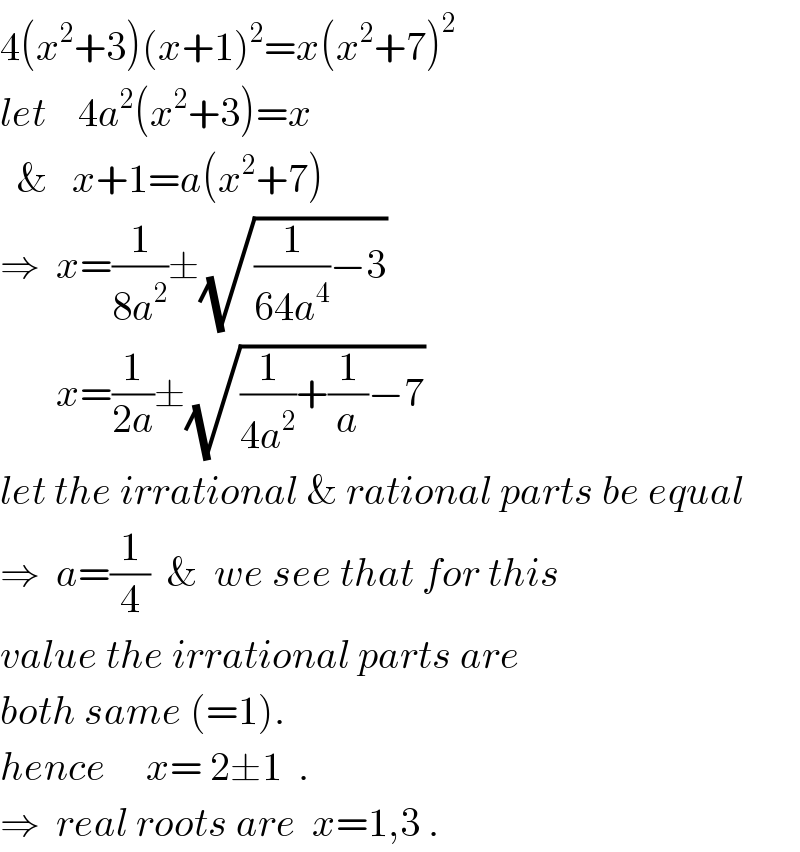
Question and Answers Forum
Question Number 64130 by ANTARES VY last updated on 14/Jul/19

Commented by Prithwish sen last updated on 14/Jul/19

Answered by mr W last updated on 14/Jul/19

Answered by ajfour last updated on 14/Jul/19

| ||
Question and Answers Forum | ||
Question Number 64130 by ANTARES VY last updated on 14/Jul/19 | ||
 | ||
Commented by Prithwish sen last updated on 14/Jul/19 | ||
 | ||
Answered by mr W last updated on 14/Jul/19 | ||
 | ||
| ||
Answered by ajfour last updated on 14/Jul/19 | ||
 | ||
| ||